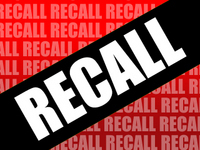Takata Reaches Agreement with National Highway Traffic Safety Administration on Expansion of Airbag Inflator Recalls
 |
AUBURN HILLS, Mich. & TOKYO -- May 19, 2015: Takata Corporation, a leading global supplier of automotive safety systems, today announced that TK Holdings Inc. (“Takata”), a subsidiary of Takata Corporation, has entered into a Consent Order with the National Highway Traffic Safety Administration (NHTSA) under which Takata has agreed to take action to address public safety concerns involved in NHTSA’s investigation of Takata airbag inflators. This action, which was made in close cooperation with NHTSA and at NHTSA’s urging, directly and preemptively addresses the issues raised by ruptures that have occurred in certain Takata airbag inflators.
Shigehisa Takada, Chairman & CEO of Takata Corporation, stated, “We are pleased to have reached this agreement with NHTSA, which presents a clear path forward to advancing safety and restoring the trust of automakers and the driving public. We have worked extensively with NHTSA and our automaker customers over the past year to collect and analyze a multitude of testing data in an effort to support actions that work for all parties and, most importantly, advance driver safety. We are committed to continuing to work closely with NHTSA and our automaker customers to do everything we can to advance the safety of drivers.”
In accordance with the Consent Order, Takata has filed with NHTSA four Defect Information Reports (“the Reports”) that contemplate expanded recalls by vehicle manufacturers, to be overseen by NHTSA, covering several types of driver-side and passenger-side inflators manufactured by Takata. The Reports describe Takata’s current understanding of the long-term potential for the performance of some inflators to be affected by exposure over several years to persistent conditions of high absolute humidity, potentially in combination with other factors, including the possibility of manufacturing issues. Under certain circumstances over time, these factors can result in the over-aggressive deployment of some inflators, which may produce a rupture of the inflator housing.
Although Takata has devoted tremendous resources to these efforts with some of the leading researchers in this field worldwide, including Fraunhofer ICT, it is clear that this is a complex issue which takes time to fully evaluate. The analysis to date suggests that the potential for this long-term phenomenon to occur was not within the scope of the testing specifications prescribed by the vehicle manufacturers for the validation and production of the subject inflators as original equipment.
The Reports establish a process to prioritize the replacement of inflators based upon age and location in accordance with testing results to date. Two of the Reports contemplate nationwide recalls that would proceed in phases to replace inflators in several makes and models of vehicles, starting first with older vehicles and, for driver inflators, starting with vehicles sold in or ever registered in states and territories with the highest absolute humidity. The other two Reports contemplate recalls of vehicles sold or ever registered in states with high absolute humidity, but with the potential for the recalls to expand later to other states and potentially nationwide if NHTSA finds that the results of further testing show the need for an expansion.
The expanded recalls encompass all of the older generation of phase-stabilized ammonium nitrate driver inflators manufactured by Takata, from the start of production to the end of production. These are the inflators that have been involved in most of the field incidents where inflators have ruptured.
Under the Consent Order, Takata also has agreed to continue to cooperate with all future regulatory actions and proceedings that are part of NHTSA’s ongoing investigation and oversight of the Takata airbag inflators and accompanying remedial actions, continue to respond to all NHTSA information requests in a complete and timely fashion, and continue to provide NHTSA with all test results and data related to Takata inflators, among other provisions. While the Consent Order does not release Takata from potential civil penalties, NHTSA will not seek any civil penalties demanded under its letter dated February 20, 2015, beyond those that may be applicable before May 18, 2015. Under the Consent Order, NHTSA will take into account Takata’s cooperation in seeking any civil penalties against Takata in the future. Takata will work with its automotive customers to develop plans for reaching out to vehicle owners in order to maximize recall completion rates.


